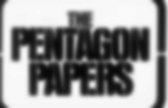

PBS: The Most Dangerous Man in America DVD - Pentagon Papers DVD. The Pentagon Papers and Wikileaks "Afghan War Diary" | The Most Dangerous Man in America. The Pentagon Papers were first published in The New York Times on Sunday, June 13, 1971. Legacy of the Pentagon Papers Today, the impact of the release of the Pentagon Papers is still hotly debated. Some say the facts revealed by the Pentagon Papers gave strength to the antiwar forces across the nation and hastened the end of the war.
Others maintain that President Nixon's reaction to both the press and Ellsberg led to his downfall, which in turn helped to end the war in Vietnam. International law scholar Richard A. Falk makes the point that the revelations themselves were relatively unimportant but that "what has remained significant about the release of the Pentagon Papers is the decision by a public official to give priority to conscience as compared to career. " The WikiLeaks Afghan War Diary was first published simultaneously in The New York Times, the United Kingdom's The Guardian and Germany's Der Spiegel on Sunday, July 25, 2010.
WikiLeaks The F.B.I. and the U.S. Democracy Now! Thích Quảng Đức. Thích is a Buddhist honorary title and Quảng Đức is descriptive of meritorious attributes: see dharma name. Thích Quảng Đức[1] (1897 – 11 June 1963, born Lâm Văn Túc), was a Vietnamese Mahayana Buddhist monk who burned himself to death at a busy Saigon road intersection on 11 June 1963.[2] Quang Duc was protesting the persecution of Buddhists by the South Vietnamese government led by Ngô Đình Diệm. Photographs of his self-immolation were circulated widely across the world and brought attention to the policies of the Diệm government. John F. Kennedy said in reference to a photograph of Duc on fire, "No news picture in history has generated so much emotion around the world as that one. "[3] Malcolm Browne won a Pulitzer Prize for his photograph of the monk's death. [4][5] Quang Duc's act increased international pressure on Diệm and led him to announce reforms with the intention of mollifying the Buddhists.
Biography[edit] Religious background[edit] Self-immolation[edit] David Halberstam wrote: Pentagon Papers. A CIA map of dissident activities in Indochina published as part of the Pentagon papers The Pentagon Papers, officially titled United States – Vietnam Relations, 1945–1967: A Study Prepared by the Department of Defense, is a United States Department of Defense history of the United States' political-military involvement in Vietnam from 1945 to 1967. The papers were discovered and released by Daniel Ellsberg, and first brought to the attention of the public on the front page of The New York Times in 1971.[1] A 1996 article in The New York Times said that the Pentagon Papers had demonstrated, among other things, that the Johnson Administration "systematically lied, not only to the public but also to Congress. "[2] More specifically, the papers revealed that the U.S. had secretly enlarged the scale of the Vietnam War with the bombings of nearby Cambodia and Laos, coastal raids on North Vietnam, and Marine Corps attacks, none of which were reported in the mainstream media.[3] Contents[edit]
Pentagon Papers - Vietnam War.